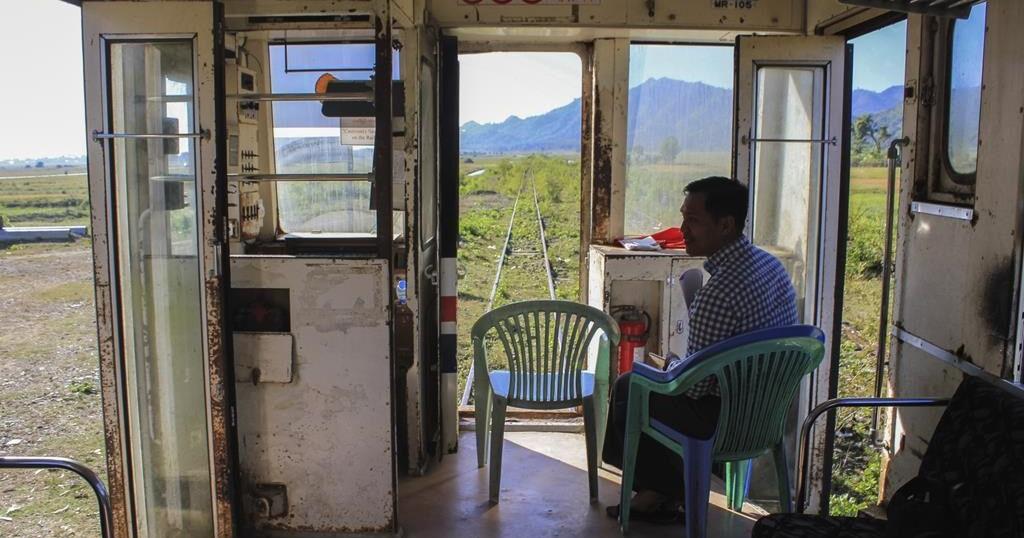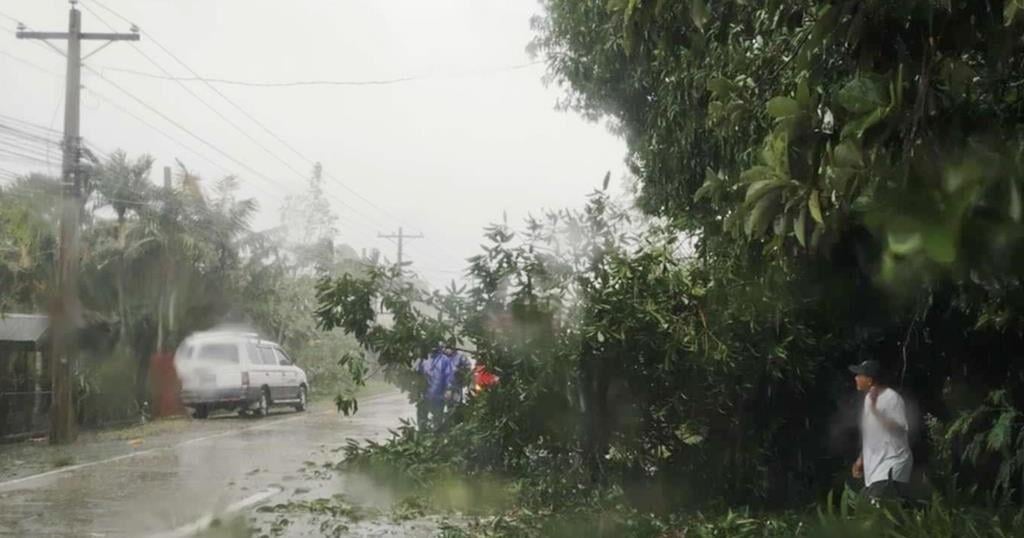BANGKOK (AP) — For three months in 2016, a British journalist working in Myanmar traveled across the Southeast Asian country on trains with a mission to find out where they led, who built them, and why.
Clare Hammond arrived in Myanmar during a period of hope amid a transition to civilian rule, as Aung San Suu Kyi was coming to power after her decades of struggle against military rule.
Hammond recounts her travels in “On the Shadow Tracks: A Journey through Occupied Myanmar,” published in June, which began after she came across a map showing a far more extensive railway network than she had anticipated.
The rails carried troops and supplies deep into Myanmar’s interior, first on behalf of the British and later the Myanmar military. Following these tracks, Hammond uses the railways as a lens to understand the recent troubled history of Myanmar, formerly Burma.
As Hammond confronts Myanmar’s successive rulers’ records of coerced labor, environmental degradation, and repression, she also grapples with the promise and limitations of Myanmar’s short period of democratization — which the Myanmar military brought to an end when it seized power in February 2021.
Now the country is mired in civil war after nonviolent protests against the takeover segued into a nationwide armed resistance.
The Associated Press asked Hammond to explore what her time traveling on Myanmar’s trains reveals about the country’s past, present and future.
This interview has been edited for clarity and length.
___
AP: Did the railroads achieve the military’s goals?
HAMMOND: Before they built the railways and the attendant massive military expansion that took place, many parts of the country were not really controlled by the state. They were controlled by various different ethnic armed groups, and they weren’t really connected to the central Burmese state.
After the railways were built, those parts of the country were tied much more closely to the central Burmese state. So broadly, in military terms, I think that probably is considered a success.
Obviously, it wasn’t successful for the people, who suffered because of it.
AP: You write about public memory of how the armed forces became so powerful. How do the railroads come into play?
HAMMOND: Yes, it was a strategy. It was no coincidence that the stories that people told me all across the country were so similar to one another.
I think they built these railways purposefully to strengthen themselves. I think the interesting parallel that we could make with what the British did as well was that there was this kind of element of deception — of propaganda.
In all official documents and media reports and so on, they talked about how what they were doing was for the people. It was to develop the nation. It was to bring in modernity. It would help rural people bring their produce to market. That’s what a lot of the British railway reports focused on as well: the local economy.
But really these projects were — like the colonial railways — tools of violent military expansion. The infrastructure that was built was the infrastructure of occupation.
AP: At different points in your journey, you seem to be hinting at the imminent unraveling of civilian rule. Was it inevitable?
HAMMOND: I see it not so much as the unraveling of civilian rule, as a step that is perhaps inevitable on the path to ending military rule.
During those years, the military had designed a system that worked for itself. The military had written the constitution and designed the way that parliament would work. It had control over certain ministries and it also had kept certain parts of the economy for itself.
I saw a growing discontent and growing realization that this wasn’t going to work for Myanmar. There was this increasing push-back from the civilian government and from elements of civil society against the systems that the military put in place.
The military was refusing to budge because it had dedicated all of this time to building itself into this position of power. So, something had to give.
AP: Was there anything from this train journey that gave you hope about Myanmar’s future?
HAMMOND: I was traveling along the railways that the military built, and so I was traveling through places that were under military control. Just beyond these places, everywhere I went, community life was thriving.
I go beyond the edge of the railway network and find this incredible group of people. These are Karenni (ethnic minority) armed groups, and they’ve built for themselves everything they need.
Since the coup, they’ve been at the forefront of the revolution. They’ve started putting in place local governance systems that other parts of the borderlands are learning from, and people are talking to each other and sharing ways of governance. In a lot of the borderlands, they govern their own land and resources brilliantly. There’s a huge amount of knowledge about how to govern land and resources in ways that work for people all over the country.
The problem is that people haven’t been able to do that because of the British colonial expansion and then the expansion of Myanmar’s military. But the ideas are there, and now, as the revolution’s territorial gains increase, I think there is hope of a different type of future for Myanmar.






















